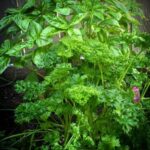Nightcrawlers are not just good for vegetable gardens, they are essential for maintaining healthy soil and promoting plant growth. These fascinating creatures play a crucial role in improving soil quality and fertility, making them incredibly valuable to anyone looking to cultivate a successful garden. In this article, we will explore the various benefits of introducing nightcrawlers to your vegetable garden and how their behavior and habits can contribute to better root growth and overall plant health.
One of the key advantages of having nightcrawlers in your vegetable garden is their ability to aerate the soil. By burrowing through the earth, these worms create channels that allow air and water to penetrate deep into the ground, enhancing the root systems of your plants. Additionally, nightcrawlers promote better drainage and nutrient distribution, ultimately leading to healthier and more bountiful crops.
In comparison to other types of worms, nightcrawlers stand out for their remarkable efficiency in recycling organic matter and nutrients. Their digestive processes result in rich castings that make for excellent natural fertilizer, enriching the soil with essential minerals and nutrients. Whether you’re an experienced gardener or just starting out, understanding the value of nightcrawlers in vegetable gardens is sure to inspire you to incorporate them into your gardening practices.
Benefits of Nightcrawlers in Vegetable Gardens
Nightcrawlers, also known as earthworms, play a vital role in improving the soil quality and fertility of vegetable gardens. Their presence in the soil offers numerous benefits that directly contribute to the health and productivity of the garden.
Soil Aeration and Drainage
One of the key benefits of nightcrawlers in vegetable gardens is their ability to aerate the soil. As they burrow through the earth, they create small channels that allow air, water, and essential nutrients to penetrate deep into the soil. This process enhances soil structure and promotes better drainage, which can prevent waterlogging and root rot in vegetable plants.
Organic Matter Decomposition
Nightcrawlers are efficient decomposers of organic matter such as dead leaves, plant debris, and other decaying materials. By consuming this organic matter and excreting it as nutrient-rich castings, they help to recycle nutrients back into the soil. This natural fertilizer not only enriches the soil but also provides valuable sustenance for vegetable plants, promoting healthier growth and higher yields.
Enhanced Nutrient Availability
In addition to improving soil structure and recycling organic matter, nightcrawlers also play a crucial role in enhancing nutrient availability in vegetable gardens. Through their feeding and digestion processes, they release nutrients such as nitrogen, phosphorus, potassium, and calcium in a form that is readily accessible to plant roots. This results in healthier, more vigorous plants with improved resistance to disease and environmental stressors. Overall, incorporating nightcrawlers into vegetable gardens can significantly boost soil fertility and overall garden productivity.
Nightcrawler Behavior and Habits
Nightcrawlers are an integral part of the ecosystem in vegetable gardens, especially when it comes to maintaining healthy soil and promoting better root growth. Their behavior and habits play a significant role in aerating the soil and creating an environment that is conducive to optimal plant growth. Here are some key ways in which nightcrawlers contribute to the overall health of vegetable gardens:
- Aeration of Soil: Nightcrawlers help improve soil structure by creating tunnels as they burrow through the ground. These tunnels allow for better air circulation and water drainage, preventing soil compaction and creating an environment where plant roots can thrive.
- Organic Matter Recycling: Nightcrawlers feed on decaying organic matter, such as leaves and other plant debris, breaking them down into nutrient-rich castings. These castings are then deposited back into the soil, providing essential nutrients for plant growth.
- Promotion of Root Growth: The activities of nightcrawlers within the soil create pathways for plant roots to penetrate deeply, allowing for stronger root systems and improved nutrient uptake.
When compared to other types of worms commonly found in gardens, nightcrawlers stand out for their ability to create deep vertical burrows that aid in improving soil structure and promoting better root growth. Their unique behavior sets them apart as highly beneficial additions to vegetable gardens.
Attracting nightcrawlers to your vegetable garden can be achieved by creating a welcoming environment that mimics their natural habitat. Keeping the soil moist, adding organic mulch or compost, and avoiding chemical pesticides will encourage these beneficial worms to take up residence in your garden and contribute to its overall health. By understanding and appreciating the role of nightcrawlers in vegetable gardens, gardeners can harness their natural behaviors to create thriving, sustainable growing environments.
Nightcrawlers vs Other Types of Worms
Nightcrawlers, also known as angleworms, are one of the most beneficial types of worms for vegetable gardens. Unlike other types of worms, nightcrawlers dig burrows deep into the soil, which helps to improve aeration and drainage. Their tunnels also allow water and oxygen to penetrate deeper into the ground, creating healthier growing conditions for vegetables.
One of the key advantages of nightcrawlers over other worms is their ability to break down organic matter more efficiently. The castings left by nightcrawlers are rich in nutrients and beneficial microorganisms, making them an excellent natural fertilizer for vegetable gardens. Additionally, nightcrawlers eat their own weight in organic matter every day, helping to speed up the decomposition process and enriching the soil with essential nutrients.
Compared to other types of worms that mainly stay near the surface, nightcrawlers are known for their deep burrowing habits. This means they can reach greater depths in the soil, which promotes better root growth for vegetables and improves overall soil structure. Their activities also help to prevent compaction and create channels for plant roots to access water and nutrients.
| Nightcrawler Benefits | Other Worm Types |
|---|---|
| Deep burrowing improves soil aeration and drainage | Mainly stay near the surface |
| Efficient breakdown of organic matter | Limited efficiency in breaking down organic matter |
| Promotes better root growth for vegetables | Limited impact on root growth due to shallow burrowing habits |
How to Attract Nightcrawlers to Your Vegetable Garden
If you want to take advantage of the benefits that nightcrawlers can provide in your vegetable garden, it’s important to create an environment that is attractive to these beneficial worms. There are several ways to make your garden a welcoming place for nightcrawlers.
Provide Organic Matter
Nightcrawlers thrive in environments with plenty of organic matter. Adding compost, leaf mulch, or well-rotted manure to your vegetable garden can help attract these worms. The organic matter provides food for the nightcrawlers and creates a rich, fertile soil that they will find appealing.
Avoid Chemicals
Chemicals such as synthetic fertilizers and pesticides can be harmful to nightcrawlers. These chemicals can disrupt the natural balance of the soil and deter nightcrawlers from making their home in your garden. Instead, opt for natural fertilizers and pest control methods to keep your garden safe and inviting for these beneficial worms.
Maintain Moisture Levels
Nightcrawlers require moisture to survive, so it’s important to maintain appropriate moisture levels in your vegetable garden. Avoid letting the soil dry out completely, as this can drive away nightcrawlers. Mulching can help retain moisture in the soil and create a more hospitable environment for these worms.
By following these tips and creating a welcoming environment for nightcrawlers, you can encourage these beneficial worms to take up residence in your vegetable garden. Once they’ve settled in, they’ll get to work improving the soil quality and fertility, aerating the soil, promoting better root growth, and contributing to overall plant health.
Nightcrawlers as Natural Fertilizer
Nightcrawlers play a crucial role in vegetable gardens by acting as natural fertilizers through their ability to recycle organic matter and nutrients. These wriggly creatures consume decaying plant material, such as fallen leaves and decomposing roots, breaking them down into nutrient-rich castings that enrich the soil.
Nightcrawler castings are packed with essential nutrients like nitrogen, potassium, and phosphorous, which are vital for healthy plant growth. In fact, Charles Darwin referred to earthworms, including nightcrawlers, as “nature’s plows” due to their ability to mix and aerate soil while depositing nutrient-rich castings.
One of the main benefits of utilizing nightcrawlers as natural fertilizer is the improvement of soil structure. Nightcrawlers burrow through the soil, creating channels and passageways that allow air and water to penetrate deep into the ground. This aeration process facilitates better root development for vegetables and other plants in the garden. Additionally, the casts left behind by nightcrawlers act as a slow-release fertilizer, providing a continuous supply of nutrients for plant roots.
Research has shown that incorporating nightcrawlers into vegetable gardens can significantly increase crop yield and overall plant health. Their natural fertilizer production contributes to sustainable gardening practices by reducing the need for chemical fertilizers. By creating an environment that is conducive to nightcrawler activity, such as maintaining adequate moisture levels and adding plenty of organic matter to the soil, gardeners can harness the full potential of these beneficial creatures in their vegetable gardens.
| Nightcrawler Benefits | Value |
|---|---|
| Soil Enrichment | Rich in essential nutrients |
| Aeration | Promotes better root development |
| Crop Yield | Increases overall plant health |
Common Misconceptions About Nightcrawlers in Vegetable Gardens
Nightcrawlers, also known as earthworms, play a vital role in maintaining the health and fertility of vegetable gardens. However, there are some common misconceptions about these beneficial creatures that may lead gardeners to underestimate their value. Here are some myths and misunderstandings about nightcrawlers in vegetable gardens debunked:
1. **Nightcrawlers are harmful pests:** Some people believe that nightcrawlers are destructive pests that can harm vegetable plants. In reality, nightcrawlers do not feed on living plant material. They feed on organic matter in the soil, such as dead leaves and decaying roots, helping to break it down into valuable nutrients for plants.
2. **They make the soil too loose:** It is often thought that the burrowing activity of nightcrawlers can make the soil overly loose and disrupt the root systems of plants. However, while nightcrawlers do create tunnels as they move through the soil, these tunnels actually improve aeration and water drainage, promoting healthier root growth for vegetables.
3. **Nightcrawlers are not necessary if you already have other types of worms:** While it’s true that other types of worms also contribute to soil health, nightcrawlers offer unique benefits for vegetable gardens. Their larger size allows them to dig deeper into the soil, improving its structure and fertility more effectively than smaller worms.
By debunking these myths and misunderstandings, it becomes clear that incorporating nightcrawlers into a vegetable garden can greatly enhance its productivity and overall health. It’s important for gardeners to recognize the valuable contributions of these earthworms and create an environment that encourages their presence. Through promoting better soil quality and recycling organic matter, nightcrawlers truly deserve their place in vegetable gardens.
Conclusion
In conclusion, it is clear that nightcrawlers play a vital role in the health and productivity of vegetable gardens. Their ability to improve soil quality, aerate the soil, promote better root growth, and recycle organic matter make them an invaluable asset to any garden. While there are other types of worms that may also contribute to the garden’s well-being, nightcrawlers have unique qualities that make them particularly beneficial for vegetable gardens.
By creating a welcoming environment for nightcrawlers in your garden and understanding their behavior and habits, you can effectively attract these helpful creatures and reap the rewards of their presence. Additionally, utilizing nightcrawlers as natural fertilizer not only benefits your garden but also reduces the need for synthetic fertilizers, making your gardening practices more sustainable.
In debunking common misconceptions about nightcrawlers in vegetable gardens, it is important to recognize and appreciate the valuable role they play in maintaining a healthy and thriving garden ecosystem. Therefore, I encourage all readers to consider incorporating nightcrawlers into their vegetable gardens and witness firsthand the significant impact they can have on overall garden health and productivity.
Frequently Asked Questions
What Are the Best Worms for a Vegetable Garden?
The best worms for a vegetable garden are generally red wigglers or earthworms, as they help with soil aeration and nutrient cycling. They also produce castings (worm poop) that can enrich the soil and improve plant growth. These worms can be added to a compost bin or directly into the garden soil to enhance its fertility.
Can You Release Nightcrawlers in Your Garden?
It is possible to release nightcrawlers in your garden, but it’s important to consider whether they are native to your area. If not, releasing non-native nightcrawlers can have negative effects on the local ecosystem, as they may outcompete native earthworm species and disrupt the natural balance of the soil.
Are Nightcrawlers Good in Gardens?
Nightcrawlers can be beneficial in gardens because their burrowing activity helps improve soil structure by creating channels for air and water movement. This can promote healthier root growth and overall plant health.
Additionally, their castings contribute valuable nutrients to the soil, making them a welcome addition for many gardeners. However, as mentioned before, it’s important to ensure that they are native to your area before introducing them into your garden.

If you’re looking to get into vegetable gardening, or are just looking for some tips on how to make your current garden better, then you’ve come to the right place! My name is Ethel and I have been gardening for years. In this blog, I’m going to share with you some of my best tips on how to create a successful vegetable garden.





